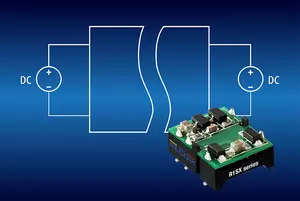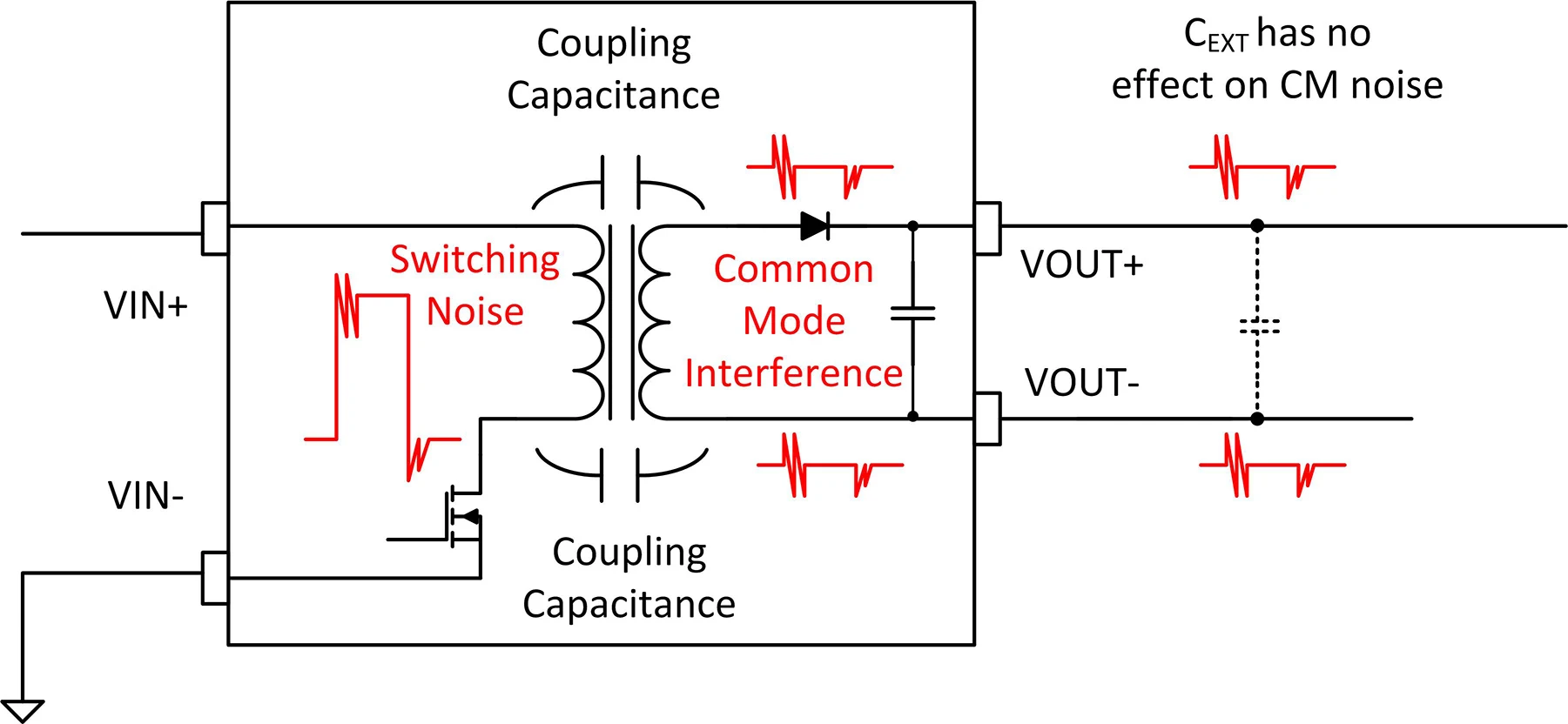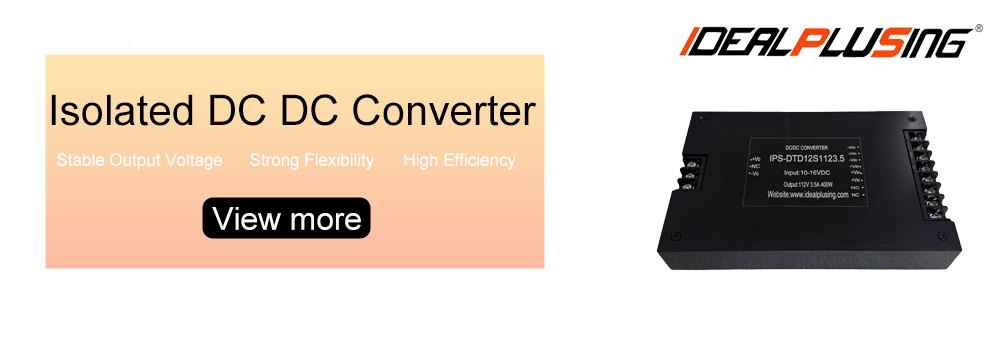Isolated DC-DC converters offer a range of key benefits that make them indispensable in many critical applications, including enhanced safety, noise reduction, electromagnetic interference, the efficiency and reliability of the converter and so on. Here’s a closer look at the major advantages they provide:
First and foremost, Electrical insulation is the major advantage of having isolated converters. “isolation” is a very popular topic. Why an isolated power converter is necessary when it comes to IPC design? An isolated power converter isolates the input from the output by electrically and physically separating the circuit into two sections which can prevent direct current flow between input and output. Typically, it is achieved by using a transformer. For example, powering your medical PCB without an isolation design, there is a greater risk for dangerous shocks or surges through the power supply and into your device, potentially harming the user and even the patient!One of the most significant advantages of isolated DC-DC converters is their ability to protect sensitive downstream components from high voltages.They reduce the risk of electric shock and damage because of ground loops and voltage fluctuations. This feature is highly beneficial, especially when dealing with industrial control procedures and medical gadgets.

When selecting an DC/DC converter, the first consideration should be safety requirements. In applications with high safety standards, such as medical devices, high-voltage equipment in industrial control systems, or electronic devices involving human contact, an isolated converter is the inevitable choice. In such scenarios, an electrical leakage accident could result in severe personal injury or equipment damage. The electrical isolation function of an isolated converter effectively blocks the path of leakage current, ensuring safety. In scenarios where safety requirements are not as stringent and the equipment already incorporates other safety measures, such as ordinary household appliances or low-voltage, low-power electronic toys, non-isolated converters can be considered to reduce costs and minimize size.
Secondly, The insulated input-output circuits allow isolated power sources to lower potential interference and electrical noise. It is vital for applications that need consistency in signals and highly accurate data transmission. For instance, measurement apparatus can take advantage of isolated DC-DC converters. Isolation helps to reduce electromagnetic interference (EMI) and minimize noise transfer between circuits. This is critical in environments where signal integrity is paramount, such as in medical devices, communications systems, and industrial control applications.electromagnetic compatibility (EMC) requirements are also an important consideration when selecting a converter. In environments sensitive to electromagnetic interference, such as communication rooms or medical equipment rooms, isolated converters can effectively suppress the conduction of interference due to their isolation function, thereby better meeting EMC requirements. Non-isolated converters, however, have direct electrical connections between the input and output, making them prone to becoming paths for interference transmission. This can cause interference to surrounding equipment and also make them susceptible to external interference. Therefore, in environments with strict EMC requirements, isolated converters are typically preferred. If non-isolated converters must be used, additional measures such as filtering and shielding may be required to improve their electromagnetic compatibility, which could increase system complexity and cost.

In practical applications, the efficiency and reliability of the converter must also be considered. At the same power rating, non-isolated converters typically have slightly higher efficiency than isolated converters due to the absence of transformer energy losses. However, in high-power applications, isolated converters can achieve high efficiency and reliability through proper topology design and heat dissipation design. Furthermore, the isolation function of isolated converters can reduce the propagation of faults, thereby enhancing the overall system reliability. In contrast, non-isolated converters, where the input and output are directly connected, can easily affect the output-side equipment if a fault occurs on the input side. Moreover, isolated DC-DC converters offer enhanced flexibility.Isolated DC-DC converters can be used to convert voltages between different parts of a system that may have different ground potentials. This makes them highly adaptable in complex multi-stage power supply systems.
From what has been disscused above , we can draw the conclusion that Choosing the right dc dc converter is important for your electrical devices. You can select a non-isolated and isolated power supply depending on your application and its needs.While searching for power supplies, you must consider safety, electromagnetic interference, and electrical noise. the efficiency and reliability of the converter is also essential for your DC-DC converters.
![]()








